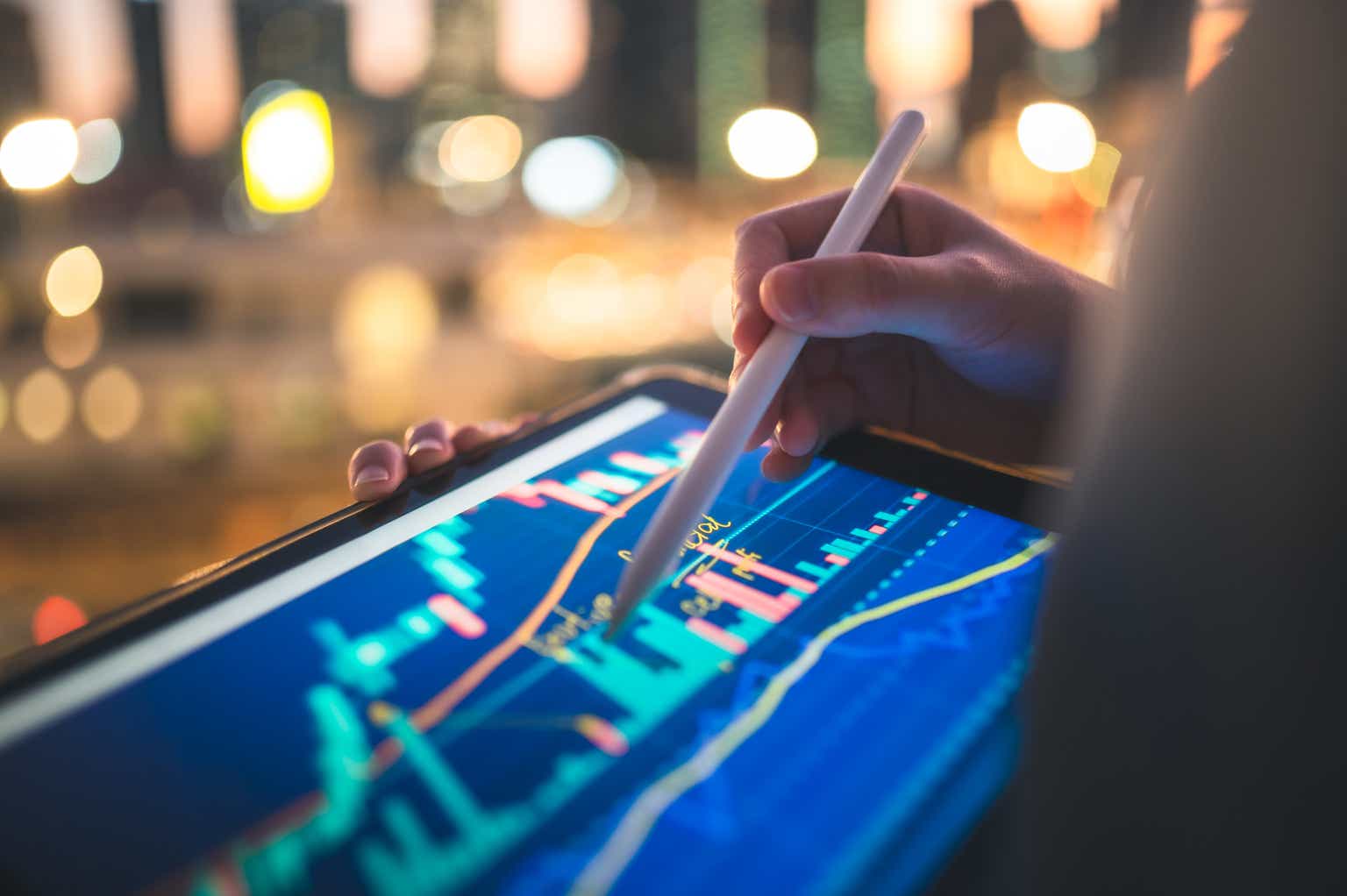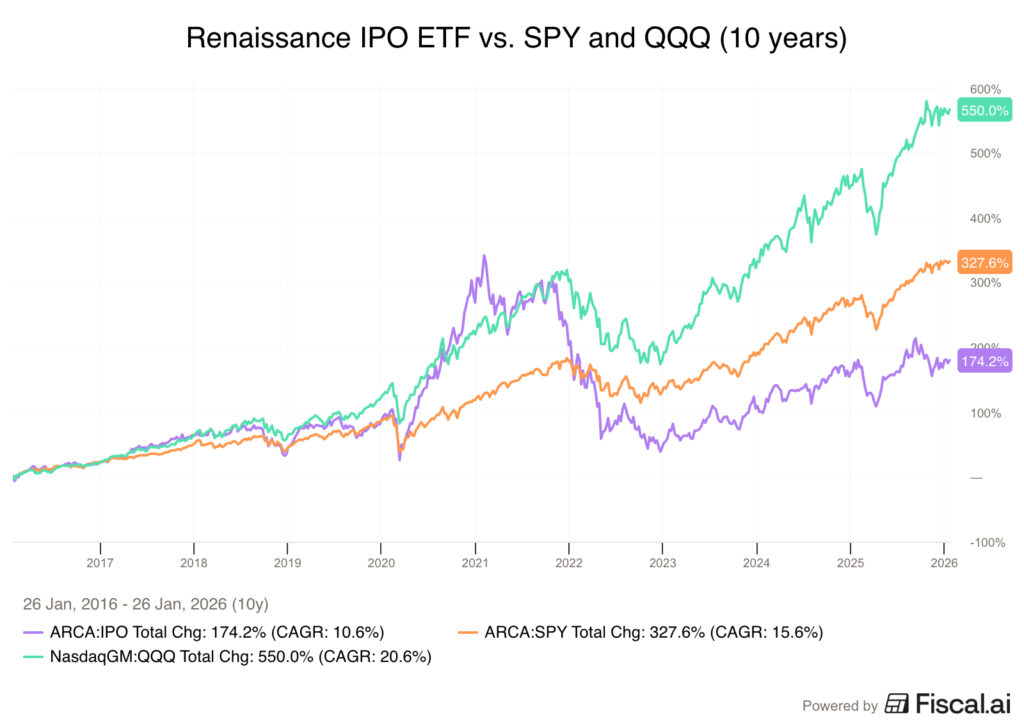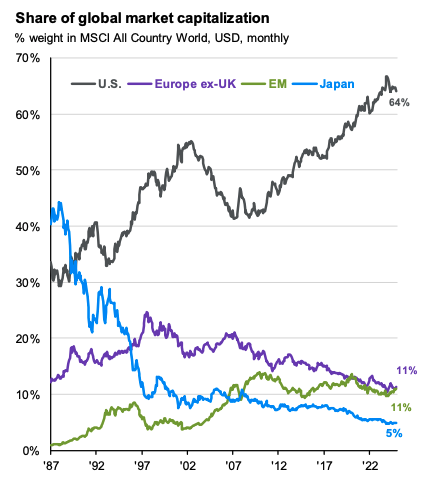Joe Scarnici/Getty Images Entertainment
Maybe I’m just thick
But there’s something I don’t understand in this AMTD little extravaganza. There are three different companies here, AMTD Group which is not listed. Then there’s AMTD IDEA (NYSE:AMTD) which is the subject of this little piece. There there’s AMTD Digital (HKD) and the end of the chain. I looked at Digital here.
As a basic idea, Group is something like an investment bank, house, in digital and China. Then IDEA is about 90% owned by Group and is an investment bank, house, in digital and China. Then Digital, owned about 90% by IDEA, is an investment bank, house, in digital and China.
Well, there might be more distinction between what the different companies do than that but there’s no grand clarity about it. Everything tends to be a bit hand wavey other than it’s all very profitable, digital, China and Hong Kong focused.
Well, digital is definitely a growth area, so is China. So, there’s clearly a vast amount of money that can be made there. And clever investment banking is where it’s going to be made and that’s the bull case here. These are the folk cleaning up in that market.
I’m perfectly willing to believe that, although to invest I’d want to have a great deal more clarity about what is being done, by and to whom.
One downside
There is a considerable downside to this. Which is that if an investment bank is what they really are then the valuation is absurd. As several pointed out when the HKD price went crazy (from the IPO price of $7.80 to $1,897 on a very thin float indeed) that made them worth more than Goldman Sachs. Which – if they’re an investment bank – is a useful comparator of course. It’s just that GS is vastly, hugely larger. And investment bank earnings and revenues tend to be lowly rated. Low multiplies capitalised into the share price. Simply because investment banking is capital hungry and also risky.
We might also think of them as being an investment organising house – a broker perhaps – more like Lazards. But then again such revenues are lowly valued – they’re highly variable and most of them, in the end, stick to the hands of the staff not the shareholders.
So, a standard look would be that sure, OK, they’re the hot shot bankers in this territory and at this time. But that still doesn’t lead to interesting multiples of revenue or profit as a valuation simply because that’s not how we do generally value investment banks or brokers.
Well, China
It’s also possible to think that a slightly lower valuation should be applied. We’ve seen political interference in Chinese digital markets – that’s just one example. There have also been a number of IPOs and flotations from that part of the world that – to put this delicately – haven’t worked out all that well. So a certain scepticism might be appropriate.
Well, OK, but
This is all just the appropriate background to any investment proposition. What’s the market like, what’s the general story, who else has been doing what in the area and so on. We all have and should compare Rivian to Tesla and Fisker to both of them.
The actual results
We have the unaudited interims from AMTD here:
Total revenue for the six months ended June 30, 2022, increased by 27.5%
That’s good.
Profit for the six months ended June 30, 2022, increased by 27.3% as compared to the same period in prior year to HK$801.4 million (US$102.1 million equivalent).
That’s great.
And so on. Investment banking fees were up (” Our fees and commissions for the investment banking segment for the six months ended June 30, 2022 increased from HK$291.5 million for the same period in prior year to HK$436.0 million (US$55.6 million equivalent) “) and what I assume is profits from positions held were up (” increased from HK$204.0 million for the same period in prior year to HK$333.9 million (US$42.6 million equivalent) “). All of which is great. Hey, at least from these accounts we’d say that they’re a very profitable not so little investment house. Which is, as I say, just great.
But now the problem
So, if we value those profits at something like a normal investment banking house multiple we’d have a business we’d capitalise at maybe $2 billion US. This isn’t anything accurate, it’s just a brought idea – $100 million a half year, multiple of 10x, $2 billion. It’s a rough and ready fair idea.
However, AMTD IDEA also owns 90% (perhaps 89%) of AMTD Digital. Digital has a capitalisation of some $3.4 billion (US$). IDEA has a capitalisation of $2.9 billion. So, IDEA is valued at less than its Digital stake. Even though we’ve just said that the business itself, given that profit generation, might be worth $2 billion alone.
$2 billion for the business, plus $3.1 billion for the Digital stake, it should be $5 billion and change, not the current $2.9 billion, right?
One answer is simply that AMTD the ticker is grossly undervalued. Could be, obviously. Another is that the investment banking profits are so fragile, or cyclical, that they’re worth very little. Or the Digital stake is, in reality, worth very much less than the current market valuation (I think it’s obvious that it’s worth very much less than that $1,897 per share of the past as does everyone else now).
At which point I don’t know
I don’t know which bits of this valuation story do make sense. Is it that IDEA is grossly undervalued, or that Digital is grossly over or what? So, given that I don’t know I’m wary.
And yet then there’s the real estate
What really worries me though is this, to repeat from the piece about Digital:
Things get more complicated though. Before the Digital IPO there was some shuffling of assets between the three AMTD companies. Nothing unusual in that, get the right assets that you want to float into the company you’re about to float. But a similar asset shuffle after the float is much more unusual. And yet that’s what has been done. Hotel assets have been moved from AMTD Group into AMTD Digital via AMTD IDEA. Half a billion’s worth in fact, although net of debt and so on it’s around $250 million US.
Now, if you’ve a soaring share price then a very useful thing to do is offer some of your very highly valued shares for real assets. This is what Steve Case did when buying Time Warner with AOL stock. One of the deals of the century that was. Not so good for Time Warner shareholders but still.
What AMTD seems to have done is use the very highly valued shares of HKD – recall, the newly floated AMTD Digital – to buy assets from AMTD Group, that parent and unquoted company. Which is really very odd indeed. Because they even used valuations of stock along the line that were higher than market prices to do this.
One possible thought is that the hotels are overvalued – but that doesn’t seem to be the case. Singapore hotel rooms are at $1.3 million capital value each, Hong Kong not far off that at just under $6 million HKD. The hotel valuations don’t look entirely out of whack at least.
Leave aside the prices. Just think about the base idea. We’ve this digital thing that’s floated. So, now we inject real estate into it? Why? What are we doing putting real estate into a digital adventure? Hotel rooms? Really?
It doesn’t make logical sense to be doing that. And that, to me, is the big problem with this AMTD tale. Sure, use highly valued stock to buy lowly valued assets from someone else. Great deal if you can do it. Could be that those lowly valued assets will now be more highly valued – the earnings multiple of them will rise. Could be that you’ve just swapped some highly fashionable paper for some unfashionable real assets. Either way, a good deal. But why would you do this with assets you already own?
No, that’s the bit that doesn’t make sense to me. I can’t see why you’d move real assets into highly rated paper when you already own both of them.
Which is the real reason I’m not in one this.
My view
There’s something going on here that I don’t understand. Sure, could be just my brain power that isn’t grasping the grand plan. But even that’s a good enough reason not to be in the adventure. Don’t do things you don’t understand is a pretty good investment rubric
The investor view
I have no doubt at all that the two AMTD companies are going to be fun to speculate in. Do note that speculation implies thinking about going both up and down. But the real problem is that if the underlying story – or certain actions that are part of it – don’t make objective sense then it’s very difficult indeed to gain an objective view of which way the prices are going to go.
If you think you do know then good luck to you. But until the story does make sense I’d suggest that it’s mere gambling, not even speculation let alone investing.















